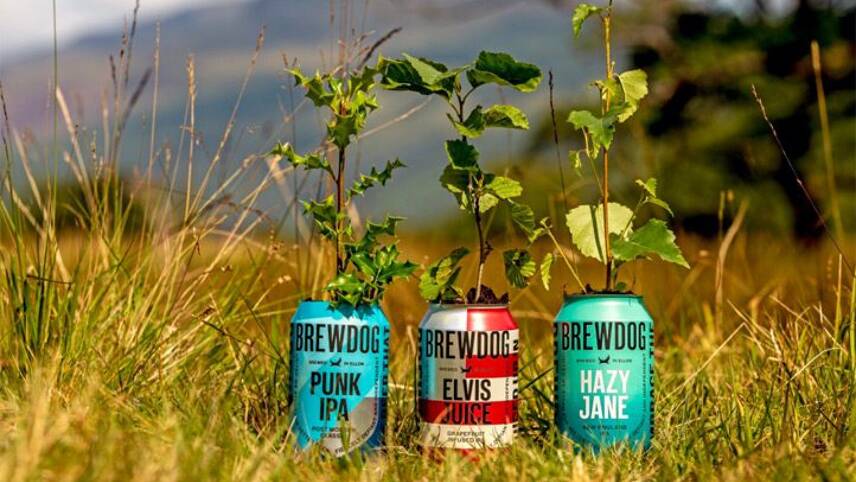Register for free and continue reading
Join our growing army of changemakers and get unlimited access to our premium content

The brewer is choosing a nature-based approach to meeting its new offsetting target. Image: Brewdog
In the latest edition of its sustainability report, published this weekend, the brewer made a commitment to remove twice as much carbon from the air each year as it emits, with the first year being August 2020 through August 2021.
The report explains that, after a series of investments to reduce Brewdog’s emissions footprint and to offset more carbon than it creates, the company is planning to plant more than one million trees by 2022. It has purchased land near Loch Lomond, Scotland, which is currently used as grazing land, upon which to plant the trees and to restore peatlands. Brewdog is working with Scottish Woodlands to complete the project.
The forest and peatland in Scotland alone will not sequester twice as much carbon as Brewdog generates. To that end, the company is also funding other nature-based offsetting projects in the UK through The Woodland Trust and The Ribble Rivers Trust, as well as projects overseas through the Nature Conservancy of Canada and Australia’s Carbon Neutral Gold Standard.
Brewdog’s sustainability report reveals that its Scope 1, 2 and upstream Scope 3 emissions in 2019 totalled 67,951 tonnes of CO2 equivalent. Recent years have seen the company invest in 100% wind power in the UK, systems to extract biomethane from its main by-product malted barley, and energy efficiency improvements.
To further reduce its emissions footprint in the near future, therefore minimising the amount of CO2e that will need to be double offset, Brewdog is rolling out fully electric delivery vehicles, produced in partnership with Arrival, by the end of 2020. It is also investing in technology which will capture the carbon dioxide produced by the fermentation of beer, which does not yet have a target date, and an anaerobic digester for brewery wastewater, due to enter operation in 2021.
“At Brewdog, we thought we were doing our bit for the planet. But after meeting David Attenborough and hearing him deliver a talk on climate change, we started doing more research into the matter and then it hit us – the blindingly stark realisation that we were not doing anything like enough,” Brewdog co-founders James Watt and Martin Dickie said in a statement.
“In fact, we were massively contributing to the current existential problem that our planet and our species are facing… there has been too much bull**** and a lack of meaningful action for too long.”
Crunch time for carbon
Since the IPCC published its landmark report on climate change in 2018, carbon negativity has been a major talking point in the corporate sustainability space and a select few companies have taken it from concept to reality.
At the COP25 summit in Madrid last December, Drax pledged to become carbon negative by 2025 by scaling up the use of carbon capture and storage technologies at its biomass generation plants, and by ditching coal and setting new sustainability requirements for biomass sourcing.
Since then, AstraZeneca and Microsoft have both set carbon negativity targets for 2030 and Interface has set one for 2040. ByWater Properties has also unveiled plans for what it hopes will be London’s first carbon-negative office development.
Brewdog’s sustainability report aims open criticism at any business which has a net-zero target set later than 2030. The IPCC’s report warned that 2050 was the absolute latest point at which global emissions could be brought to net-zero and warming capped at 1.5C, meaning that organisations and nations with the ability to move faster must do so to maximise the probability of meeting the Paris Agreement targets.
Sarah George


Please login or Register to leave a comment.